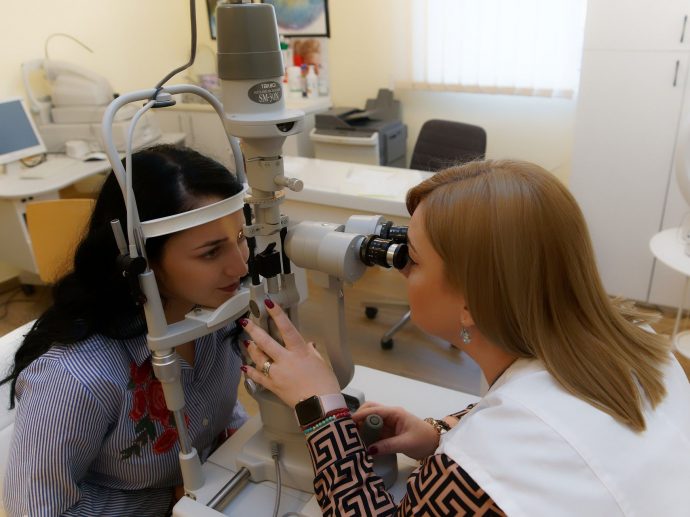Categories more
- Adventures (17)
- Arts / Collectables (15)
- Automotive (37)
- Aviation (11)
- Bath, Body, & Health (77)
- Children (6)
- Cigars / Spirits (32)
- Cuisine (16)
- Design/Architecture (22)
- Electronics (13)
- Entertainment (4)
- Event Planning (5)
- Fashion (46)
- Finance (9)
- Gifts / Misc (6)
- Home Decor (45)
- Jewelry (41)
- Pets (3)
- Philanthropy (1)
- Real Estate (16)
- Services (23)
- Sports / Golf (14)
- Vacation / Travel (60)
- Watches / Pens (15)
- Wines / Vines (24)
- Yachting / Boating (17)
How Regular Eye Exams Can Improve Your Quality of Life
Published
07/14/2024Main Points To Remember
- Regular eye check ups play a role in maintaining health and enhancing the quality of life.
- They are instrumental in identifying signs of conditions such as diabetes and hypertension thereby contributing to well being.
- Taking care of our eyes can lead to better performance in activities and work efficiency.
- It is crucial to prioritize eye examinations to prevent long term harm and ensure holistic wellness.
- Seek guidance on eyeglasses from reliable sources for advice.
- Routine eye exams can help identify issues like cataracts and systemic illnesses, enabling timely intervention and lowering the risk of complications in the long run.
Advantages of Routine Eye Check-ups
The advantages of eye check-ups are abundant. They aid in identifying vision concerns such as nearsightedness and farsightedness. Moreover, they play a role in spotting signs of eye conditions that could potentially lead to vision loss. Research from the American Academy of Ophthalmology emphasizes the importance of eye exams in preserving eye health during periods. Regular screenings also facilitate interventions that help prevent the advancement of eye ailments. Additionally, routine eye examinations can reveal conditions that may be impacting both your overall well-being and comfort, such as computer vision syndrome and chronic dry eyes, which can arise from prolonged screen exposure and inadequate tear production. By addressing these conditions, including inserting searching for eye glasses near me, you can steer clear of discomfort and potential deterioration in vision quality.
How Often Should You Get Eye Exams?
The frequency at which you should undergo an eye examination is contingent upon factors such as age, health status and risk factors associated with eye diseases.
Typically, adults aged 18 to 60 should schedule an eye check up every two years. However, individuals with eye health concerns might require frequent visits to an optometrist. The Centers for Disease Control and Prevention (CDC) recommend examinations for those with conditions such as diabetes or a family history of eye diseases. Regular check ups help in addressing any changes in vision or eye health.
In contrast, children should begin receiving eye exams at six months old followed by another assessment at three years old and before starting school. Early detection of vision issues in children is crucial as it can impact their learning and overall development. Seniors aged 60 and above are also encouraged to undergo eye exams to monitor age related vision changes and ensure treatment for conditions like cataracts and macular degeneration.
Conditions Detected by Eye Exams
Eye exams play a role in detecting conditions that may not exhibit noticeable symptoms in their early stages. These include glaucoma, cataracts, macular degeneration and diabetic retinopathy. Furthermore, optometrists can spot signs of conditions such as diabetes and hypertension that may initially present as changes, in the eyes. Detecting these conditions through eye check ups can result in better management and prevention of serious complications.
Glaucoma, often known as the " thief of sight " progresses silently without symptoms until there is significant vision loss. Regular eye exams can identify the pressure associated with glaucoma enabling early intervention to prevent or slow down vision loss. Similarly, diabetic retinopathy can develop in individuals, with diabetes and timely detection is crucial to prevent vision impairment or blindness. If you're in Mississippi, scheduling an appointment with an experienced eye doctor in Hernando, MS can be an excellent way to stay proactive about these conditions and receive personalized care tailored to your needs.
Enhancing Your Quality of Life
Eye care is linked to enhanced performance in activities and increased work productivity. Improved vision can boost your efficiency in tasks, decrease the chances of headaches, and ward off fatigue. Moreover, clear vision plays a role in ensuring safety during activities that demand eyesight like driving. By ensuring visibility you reduce the risk of accidents. Enhance your overall quality of life. Maintaining vision allows you to enjoy your interests engage with others effectively and live a more satisfying life.
For those who spend periods in front of screens regular eye exams can help address concerns such as digital eye strain or computer vision syndrome. Taking care of your eyes is essential to avoid discomfort maintain productivity and prevent vision issues in the run. Seeking advice from an eye specialist could lead to solutions like computer glasses. Adjusting your workspace setup can also improve your well being.
Here are some tips for looking after your eyes
- Make sure to schedule eye check ups to keep track of your eye health.
- Follow a diet that includes plenty of vitamins A, C and E.
- Wear eyewear when out in bright sunlight or engaging in sports activities.
- Limit screen time and remember the 20 20 20 rule; take a break every 20 minutes by focusing on something at 20 feet for about 20 seconds.
- Stay hydrated and refrain from smoking to reduce the chances of developing eye related problems.
- Including foods like leafy greens, salmon and citrus fruits, in your meals can supply nutrients for good eye health. Practicing hygiene by washing hands and refraining from touching your eyes can help prevent infections. Giving your eyes breaks from screens and ensuring lighting when reading or working can minimize strain and fatigue.















